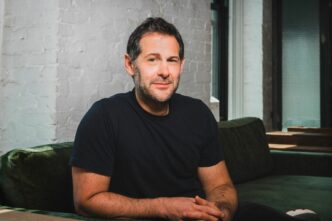A student-led startup from the University of Washington is gaining attention for tackling a critical issue threatening energy reliability: power grid failures. Team Voltair has developed an AI-powered, self-charging drones system that inspects power lines for fire and outage risks. And their innovative approach just earned them the $15,000 grand prize at the University of Washington’s Environmental Innovation Challenge.
Competing against 22 other student startups from across the Pacific Northwest, Voltair pitched their solution Thursday at Seattle Center. Standing out with a bold plan to modernize utility grid inspections. Their drones, built to fly long distances and recharge directly from power lines, promise to change how utility companies manage critical infrastructure. Especially in remote and rural areas.
With increasing demand on the electrical grid due to electric vehicles, heat pumps, data centers. And expanded electrification, grid reliability has never been more vital. Yet, outages are also on the rise, fueled by climate-related extreme weather and a shrinking workforce of aging utility line technicians.
Ronan Nopp, one of Voltair’s founders, explained the urgency: “If you’re installing a heat pump or getting an EV. It doesn’t make sense if your power goes out every month. Grid uptime is a key unlock for the future of electrification.”
Voltair’s drones aim to patrol thousands of miles of transmission lines, starting with identifying vegetation growth — a common fire hazard. Using AI, their system analyzes real-time video and sensor data to flag issues such as damaged insulators and failing components. Helping crews prioritize inspections before problems escalate.
But what really sets Voltair apart is its recharging breakthrough. The drones are equipped to draw power directly from the lines they monitor, eliminating the need for frequent returns to base — major advantage in areas where infrastructure is spread thin.
Currently operating in semi-autonomous mode, the team plans to make the system fully autonomous in future iterations. They’ve already started conversations with regional utilities to test and refine their prototype. Team member Hayden Gosch, who has interned with Seattle City Light for two years, said their concept is rooted in real-world feedback: “We interviewed over a dozen local utilities to understand their pain points and figure out what kind of tool would truly help.”
The next milestone? Building a working minimum viable product and preparing to compete in the upcoming Dempsey Startup Competition.
Voltair’s founding team includes Nopp, Gosch, Aryan Sharma, Hunter McKay, Andy Legrand, and Isabella Crosby — all driven by a shared mission to prevent outages and reduce wildfire risks using scalable AI solutions.
Other Top Student Innovations from the Challenge
Now in its 17th year, the Environmental Innovation Challenge — hosted by UW’s Buerk Center for Entrepreneurship. Drew a record 43 team entries this year. Here are the other prize-winning startups:
- Metallyze (University of British Columbia) – Winner of the $10,000 second prize for its IoT sensor system that detects heavy metals in wastewater in real time.
- JanuTech (University of Washington) – Took home the $5,000 third-place award for developing new battery materials to boost drone performance.
- EnviroTect (UW) – Earned the $5,000 Climate Action Prize with its gas-filtering device for surgical procedures.
- Elementrailer (UW) – Claimed the $2,500 Reimagine Prize with an electric-powered trailer to support EV towing and reduce fuel waste.
- Subvision Robotics (Simon Fraser University) – Won the $2,500 Oceanography Innovation Prize for its autonomous UV marine rover that cleans ship hulls.
- Solar IndusTrees (UW) – Received a $1,000 Spark Award for its low-cost tech that boosts solar panel efficiency.
- CureXsco (UW) – Another Spark Award winner, recognized for its regenerative filter tech to remove PFAS or “forever chemicals.”
This year’s competition welcomed teams from UW Seattle, UW Tacoma, Portland State, Gonzaga, the University of Idaho, and more. The challenge has a proven track record of launching real-world startups. Including notable alumni like Aquagga, Atomo, Membrion, and NoWhere Foods.
As for Voltair, they’re now positioned to take their solution from concept to commercial pilot. Potentially reshaping how utilities maintain the energy grid in an era of rising climate risk and electrification.













